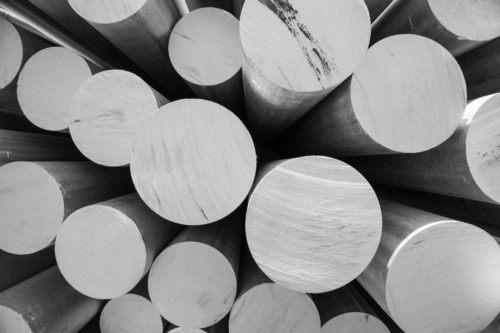Some Known Details About Alcast Company
Some Known Details About Alcast Company
Blog Article
Alcast Company - Truths
Table of ContentsAlcast Company Can Be Fun For AnyoneIndicators on Alcast Company You Should KnowThe Ultimate Guide To Alcast CompanyTop Guidelines Of Alcast CompanyThings about Alcast CompanyThe 25-Second Trick For Alcast Company
The refined distinction hinges on the chemical web content. Chemical Comparison of Cast Aluminum Alloys Silicon advertises castability by reducing the alloy's melting temperature level and enhancing fluidness throughout spreading. It plays an essential role in allowing elaborate mold and mildews to be loaded precisely. Furthermore, silicon contributes to the alloy's strength and wear resistance, making it useful in applications where longevity is critical, such as automotive components and engine parts.It also improves the machinability of the alloy, making it simpler to process right into completed products. This way, iron adds to the general workability of aluminum alloys. Copper raises electric conductivity, making it useful in electric applications. It additionally improves rust resistance and adds to the alloy's overall stamina.
Manganese contributes to the strength of aluminum alloys and improves workability (Aluminum Casting). It is generally utilized in wrought aluminum products like sheets, extrusions, and profiles. The existence of manganese aids in the alloy's formability and resistance to fracturing throughout manufacture procedures. Magnesium is a lightweight element that gives toughness and effect resistance to aluminum alloys.
Alcast Company Can Be Fun For Anyone
It permits the manufacturing of lightweight elements with exceptional mechanical buildings. Zinc improves the castability of aluminum alloys and helps control the solidification procedure throughout spreading. It improves the alloy's toughness and hardness. It is often discovered in applications where intricate shapes and fine details are necessary, such as ornamental castings and certain automotive parts.

The key thermal conductivity, tensile strength, yield strength, and prolongation vary. Amongst the above alloys, A356 has the greatest thermal conductivity, and A380 and ADC12 have the cheapest.
Alcast Company for Beginners

In accuracy spreading, 6063 is fit for applications where intricate geometries and premium surface finishes are vital. Examples consist of telecommunication units, where the alloy's remarkable formability enables streamlined and cosmetically pleasing designs while maintaining architectural integrity. In the Illumination Solutions industry, precision-cast 6063 elements produce elegant and efficient lights components that require elaborate forms and good thermal efficiency.
It brings about a finer surface area finish and much better rust resistance in A360. The A360 displays premium elongation, making it ideal for complicated and thin-walled parts. In precision casting applications, A360 is fit for markets such as Consumer Electronics, Telecommunication, and Power Tools. Its boosted fluidness permits complex, high-precision parts like smartphone cases and communication device housings.
8 Simple Techniques For Alcast Company
Its one-of-a-kind buildings make A360 an important option for accuracy spreading in these sectors, enhancing item sturdiness and top quality. Light weight click this site aluminum alloy 380, or A380, is an extensively used spreading alloy with a number of unique features. It provides outstanding castability, making it an excellent choice for accuracy spreading. A380 displays good fluidness when molten, ensuring intricate and thorough molds are accurately replicated.
In precision casting, aluminum 413 radiates in the Customer Electronics and Power Tools sectors. This alloy's remarkable rust resistance makes it an outstanding option for outside applications, making certain resilient, resilient products in the stated sectors.
Fascination About Alcast Company
As soon as you have determined that the aluminum die casting process is suitable for your job, a critical following action is choosing the most ideal alloy. The light weight aluminum alloy you choose will substantially impact both the casting process and the properties of the final item. Since of this, you should make your decision meticulously and take an educated approach.
Identifying one of the most ideal aluminum alloy for your application will certainly imply evaluating a broad selection of attributes. These comparative alloy characteristics adhere to the North American Die Spreading Association's standards, and we've separated them into 2 classifications. The initial classification addresses alloy characteristics that influence the manufacturing process. The 2nd covers attributes affecting the residential properties of the end product.
How Alcast Company can Save You Time, Stress, and Money.
The alloy you choose for die casting directly affects several facets of the spreading procedure, like just how very easy the alloy is to work with and if it is prone to casting problems. Hot fracturing, additionally referred to as solidification cracking, is a common die spreading problem for aluminum alloys that can result in internal or surface-level tears or cracks.
Certain aluminum alloys are much more susceptible to hot fracturing than others, and your option needs to consider this. An additional typical defect found in the die spreading of light weight aluminum is die soldering, which is when the cast sticks to the die wall surfaces and makes ejection tough. It can harm both the actors and the die, so you need to seek alloys with high anti-soldering properties.
Corrosion resistance, which is already a significant quality of aluminum, can differ substantially from alloy to alloy and is a vital particular to take into consideration depending upon the ecological conditions your item will be subjected to (Foundry). Put on resistance is one more home frequently sought in light weight aluminum items and can distinguish some alloys
Report this page